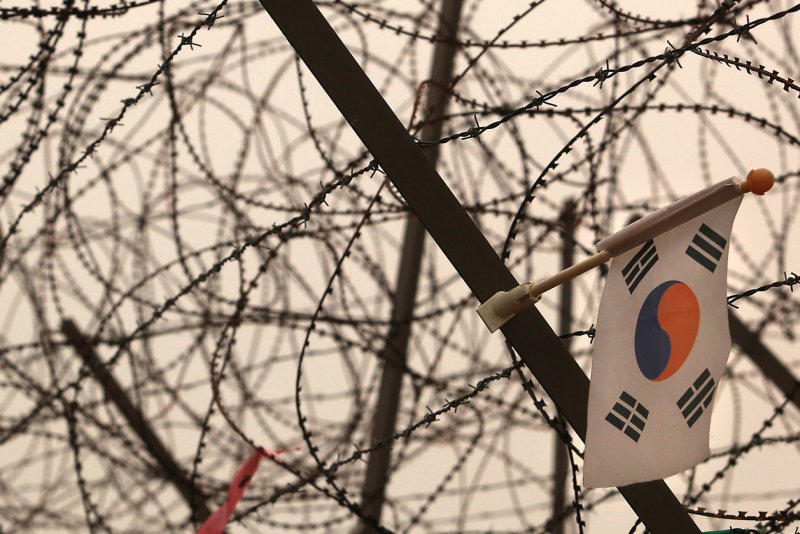Two South Korean women who received prison sentences on charges of violating an anti-communist law were acquitted on Monday. File Photo by Stephen Shaver/UPI |
License Photo
SEOUL, June 27 (UPI) -- A South Korean mother and daughter pair sentenced to prison on charges of assisting North Korean spies and praising the Kim Il Sung regime three decades ago were acquitted of the charges.
The mother, identified by her surname Hwang, died in 2011 at age 73, leaving her 56-year-old daughter with the surname Kim to be cleared of the indictments, South Korean newspaper Chosun Ilbo reported.
South Korea's Jeju District Court ruled the submitted evidence "does not prove a crime" that is in violation of the anti-communist National Security Law and acquitted the defendants.
In 1983, Hwang was arrested on charges of disseminating propaganda promoting the General Association of Korean Residents in Japan, or Chongryon, an organization that continues to serve as a mouthpiece for Pyongyang.
Kim, the daughter, was accused of meeting with North Korean spies in Japan and South Korea from 1983 to 1984.
Three decades ago, a South Korea court sentenced Hwang to three years in prison. Kim received a seven-year sentence.
The court's verdict comes three years after surviving family requested a retrial in May 2013 – and five years after the death of Hwang.
Human Rights Watch has described South Korea's National Security Law as a "relic of the Cold War."
The law is easy to violate, according to HRW, because it applies to "any person who makes contact with a member of an anti-state organization or a person who has received an order from it."
It has also come into increasing use. The highest number of cases in a decade, said Human Rights Watch in 2015, was filed in 2013, South Korean President Park Geun-hye's first year in office.















